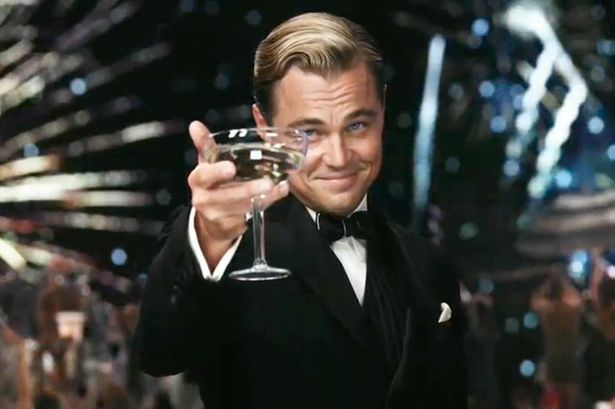
The 2013 version of The Great Gatsby was recently released on DVD/Blu-ray. I haven’t seen the film yet, given that I’m pretty lukewarm toward Baz Luhrmann. (Moulin Rouge! was enjoyable enough, Romeo + Juliet had its moments, but Australia?) But when I heard a radio advertisement for the DVD last night, I was reminded of a Nick Gillespie article from the April 2013 issue of Reason entitled “The Great Gatsby‘s Creative Destruction.” Gillespie is, according to The Denver Post, “a true intellectual, who can, before finishing his lunch, discuss how “The Great Gatsby” might be written today, switch to a riff on free-market reasons for supporting a value-added tax, reference economic studies that detail the “self-correcting” tax distribution in European countries that have applied a VAT, chart from memory the nation’s deficit spending patterns since the Great Depression, and all while handling a pretend-I’m-interested discussion with a political candidate whose conversation is limited to repeating the phrase, “It’ll be a real dog-fight, in every sense of the word.”” Not bad for #18 on The Daily Beast‘s list “The Right’s Top 25 Journalists.” (He would cringe at being lumped on “the Right” given his strong libertarianism.) The fact that he has a Ph.D. in English literature probably helps with his analysis of The Great Gatsby. And it is an interesting one.
He begins,
Based on the trailers and ads made available so far, the new movie likely errs in the same fundamental way that the Redford version did. That is, it conceives of Gatsby ultimately as a grand love story between the title character and the object of his obsessive love, Daisy Buchanan. Given the barebones plot of the book, that’s understandable but regrettable, as those two are the least compelling characters in the novel. Despite occasional moments of darkness and depth, Daisy works hard and mostly succeeds at maintaining a superficial lightness. Gatsby, despite the whirl of excitement and mystery about him, is an empty suit. Even the novel’s adulatory narrator confesses that when he’s alone with Gatsby, “I found to my disappointment, that he had nothing to say.”
The reason that Gatsby (the novel, if not the character) still has plenty to say to us is that it captures the precise moment that modern America came into recognizable shape. It is about the move from countryside to metropolis, from unum to pluribus, from hierarchy to heterarchy in all aspects of cultural and economic life. It captures a world in which nothing is fixed in terms of status, fortune, and self-fashioning—and it narrates the anxieties by such freedom.
…Gatsby…is not simply a story about class differences. It’s about the breakdown of class differences in the face of a modern economy based not on status and inherited position but on innovation and an ability to meet ever-changing consumer needs. Ultimately, Gatsby is the great American novel of the ways in which free markets (even, and perhaps especially, black markets) overturn established order and recreate the world through what Joseph Schumpeter called “creative destruction.”
Certainly one of the more novel takes on Gatsby I’ve read. The whole thing is worth reading.